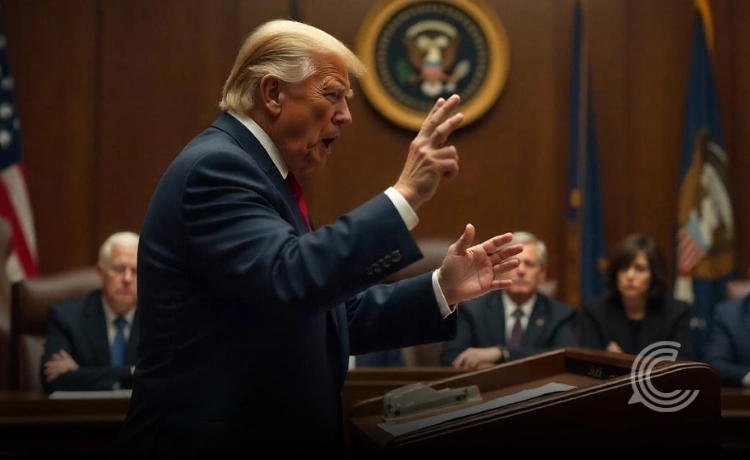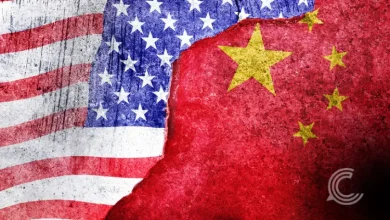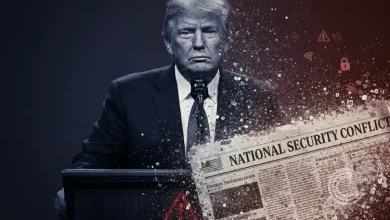The War Over Epstein Files and Insights Into Trump’s Actions

Key Points:
- Democrats on the House Oversight Committee released three key emails from Jeffrey Epstein, triggering an immediate and fierce partisan counter-attack
- The messages, dating from 2011 and 2019, contain unverified claims by the late sex offender that Donald Trump was aware of his illicit conduct and had spent time with a victim
- The White House and Republicans are forcefully framing the release as a politically motivated “smear” designed to distract from the government finally voting to end the longest shutdown in U.S. history
The long-running saga of the Epstein files has reached a new and highly political inflection point. The release of tens of thousands of pages of documents from the estate of convicted sex offender Jeffrey Epstein by the House Oversight Committee has not brought clarity or closure; instead, it has devolved into a bitter political skirmish over a handful of explosive, yet unverified, claims.
The documents were made public concurrently with the House vote to end a record-setting government shutdown, cementing the narrative that the files are being wielded as a potent political weapon in Washington.
The controversy centres on three specific emails
The four most shocking revelations highlighted by Democrats are all claims made by Epstein himself.
Direct Knowledge of Victims: In a 2019 email to author Michael Wolff, Epstein wrote that “of course he knew about the girls as he asked Ghislaine to stop,” directly suggesting Donald Trump had awareness of the illicit activity surrounding Epstein’s sex trafficking ring.
Spending Time with a Victim: A 2011 email from Epstein to his accomplice, Ghislaine Maxwell, states that an unnamed victim “spent hours at my house with him,” referring to Trump.8 The White House has since identified the redacted victim as the late Virginia Giuffre.
The “Dog That Hasn’t Barked”: The same 2011 exchange with Maxwell refers to Trump as “that dog that hasn’t barked,” suggesting investigators had suspiciously overlooked his presence in Epstein’s orbit, despite the claim that the victim in question spent hours with him.
Influence in Russia: While not explicitly detailed in the select three emails, other recently released correspondence reportedly discusses how Epstein could offer insights to Russia regarding Trump’s behavior and potential vulnerabilities.
The collective weight of these three emails directly contradicts Trump’s consistent public denial of any knowledge of Epstein’s criminal conduct, asserting that he ended their friendship decades ago due to inappropriate behavior towards Mar-a-Lago staff.
The Political Warfare
The response from the White House and Congressional Republicans was swift and coordinated. Press Secretary Karoline Leavitt condemned the release, asserting that Democrats “selectively leaked emails to the liberal media to create a fake narrative to smear President Trump.” The defence is two-fold: first, that Epstein’s private, self-serving claims are unreliable; and second, that the full context of the released Epstein files, which include over 20,000 pages of additional documents, show the release is a targeted effort to distract the public.
Significantly, the White House is countering the allegations by pointing to statements made by the victim, Virginia Giuffre. Giuffre, who died earlier this year, had repeatedly stated in depositions and her posthumously published memoir that Trump “was not involved in any wrongdoing whatsoever” and “couldn’t have been friendlier” during their limited interactions. This creates a deeply complex and unsettling narrative where the credibility of an alleged perpetrator’s private claims is pitted directly against a victim’s public testimony, further complicating the pursuit of transparency and accountability.
Trump and his allies accuse Democrats
The timing of the release is critical. As the House voted to pass the funding bill to end the government shutdown, a crisis that the Congressional Budget Office (CBO) estimated would result in the permanent loss of billions in economic activity and lowered consumer sentiment to a three-year low, Trump and his allies accused Democrats of orchestrating a “hoax” to deflect attention from the political fallout of the closure. This confluence of events ensures that the details of the Epstein files are filtered through a highly polarized political lens, making it challenging for the public to discern verifiable facts from partisan propaganda.
The demand for full transparency remains strong across the aisle. Shortly after the emails were released, a Democratic congresswoman was sworn in, giving a discharge petition the necessary signatures to force a House vote on legislation that would compel the full, public disclosure of all files related to the federal investigation into Epstein.
Whether this bipartisan effort can successfully cut through the political noise remains the critical question facing Washington, as the pursuit of accountability continues to be tangled with the complexities of high-stakes political warfare.



